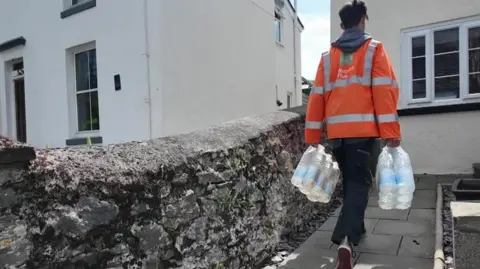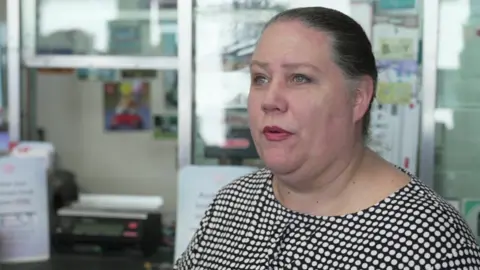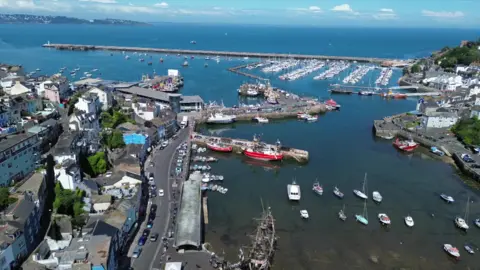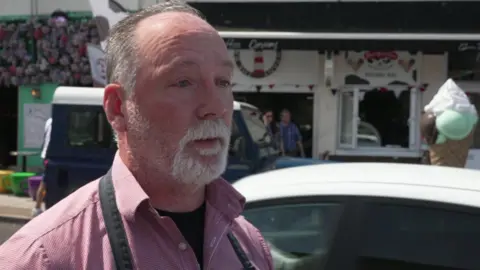How firms are coping one year after water parasite
 BBC
BBCPeople in the south Devon fishing town of Brixham remember 15 May 2024 for all the wrong reasons.
That was date the UK Health Security Agency confirmed the parasite cryptosporidium was present in tap water in the area, with South West Water (SWW) confirming the contamination of the water supply in the town the next day.
A boil notice was issued for thousands of properties, with bottled water handed to stricken residents. More than 100 confirmed cases of the diarrhoea-type illness were ultimately linked to the Brixham outbreak.
The ripple effects of the outbreak continue but some firms in the town said there was hope.

Josy Byrne, Post Office manager at nearby Kingswear, fell ill from the cryptosporidium bug on 10 May.
"I've never been so sick in my entire life," she said.
"I lost 15lb (6.8kg) in three days and was sick for the whole summer."
She said she continued to suffer from irritable bowel syndrome as a result of the infection.
The outbreak had a significant impact on local tourism, with holiday homes remaining empty as visitors cancelled their plans, she said.
"It did hurt the businesses in the area because nobody wanted to come anymore," she said.

In November 2024 SWW pledged £1.2m to help boost tourism and repair what business leaders described as "reputational damage" following the outbreak.
Carolyn Custerson, chief executive of the English Riviera BID Company, which aims to increase business in the area, said the strategy to reflect Brixham and the English Riviera in a positive light appeared to be having an impact, with an "increase in family booking numbers" over Easter.
SWW had "given us the support that has enabled us to run campaigns aimed at encouraging people to come to Brixham and the surrounding Torbay area this summer," she said.
"We are looking forward to welcoming past and new visitors to our beautiful region."
'Got to keep positive'
Andrew Stockman, who runs a picture gallery and amusement arcade in Brixham, said business had been rocked by the outbreak.
"We have seen a lot of regulars who were put off for a year find somewhere else," he said.
"It's been really significant, the streets are quieter and it will probably be two or three years before it recovers.
"These things really do affect small towns like ours."
SWW had offered him £500 compensation for both businesses, a fraction of what he reckoned he lost.
The "older crowd" that were regular visitors had also been put off by higher costs of living, he said.

John Ingram, owner of the Bay Coffee Company, said the outbreak turned Brixham into a "ghost town".
"It had a really devastating effect for about nine to 12 weeks," he said, adding the ripple effects continued throughout the year with slower bookings and harder trade.
He estimated that his business lost about 25-30% of its revenue during the crisis.
Despite the challenges, he said: "We've got to keep positive and keep working at this."
He said he was confident about the upcoming summer, with several festivals planned.
"Big smiles, great sunshine. Come and visit us here in Devon," he said.
'Improvements made'
SWW said in a statement it was "sorry for what happened in Brixham last year".
"While we can't undo what happened, we have made already made improvements to make sure it cannot happen here again," it said.
"Our focus is firmly on the future for customers and communities and we are working to support local tourism in the area.
"We are prioritising long-term improvements so that every community we serve can continue to rely on us."
The Drinking Water Inspectorate said its investigation into the incident in Brixham was ongoing.
Follow BBC Devon on X, Facebook and Instagram. Send your story ideas to [email protected].
